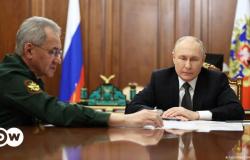
(CNN) — China and the United States face the dilemma of choosing between stability and a “downward spiral,” Chinese Foreign Minister Wang Yi told his counterpart Antony Blinken on Friday in Beijing, as the American diplomat began a day of meetings with senior Chinese officials.
Blinken’s trip to China — his second in the space of a year — comes as the two world powers seek to expand communication and stabilize fragile ties while navigating a host of thorny issues, from China’s support for Russia until its aggression in the South China Sea and towards Taiwan.
“Should China and the United States stay on the right direction of moving forward with stability or return to a downward spiral? This is an important question facing our two countries, and it tests our sincerity and capability,” Wang told Blinken during a meeting at the Diaoyutai State Guesthouse, after stating that ties between China and the US were “beginning to stabilize.”
“Should our two sides lead international cooperation against global problems and make everyone win? Or enter into rivalry and confrontation, or even fall into conflict, which would be a loss for everyone?” in a session with an interpreter.
Wang’s comments come as Chinese officials are irritated by measures taken by Washington in the name of national security, which Beijing sees as aimed at slowing its development. These include US controls on the export to China of high-tech products that could have military uses, as well as restrictions on US investment in certain high-tech sectors in China.
On Wednesday, US President Joe Biden signed a bill that could lead to a national ban on the social media platform TikTok if the company’s Chinese parent, ByteDance, does not sell it, legislation that Beijing has already denounced it before.
In his comments to Wang, Blinken noted a “shared responsibility” between the two countries to “make sure that we are as clear as possible about the areas where we have differences, at a minimum, to avoid misunderstandings, to avoid miscalculations.”
“I hope that we can make progress on the issues that our presidents agreed we should cooperate on, but also clarify our differences, our intentions, and make it very clear to each other where we stand,” Blinken declared.
The trip is the latest in a series of high-level engagements that included a summit between President Biden and Chinese leader Xi Jinping in California in November, following a period of immense tension.
Officials from both nations suggested before the trip that the visit would focus on managing the relationship and communicating concerns.
The two sides are also expected to discuss areas of contention.
Blinken is expected to raise the issue of China’s industrial and economic support for Russia, which the White House says has allowed Moscow to pursue its war against Ukraine, and to pressure China to use its relationship with Iran to force it to be less provocateur in the Middle East.
In a briefing with reporters ahead of the meeting, a Chinese Foreign Ministry official stated that Beijing has been “playing a constructive role as a responsible major country” on issues related to the Middle East, Ukraine and the Korean Peninsula and “hopes that the American side to do the same.”
In addition to concerns about American technology cuts, Wang is likely to continue to harp on China’s so-called “red lines” in the relationship, chief of which is how the United States maintains its unofficial relationship with Taiwan.
China’s ruling Communist Party claims Taiwan as part of its territory, despite never controlling it, and has in recent years intensified military intimidation of the democratic island.
“We always ask that each other’s fundamental interests be respected and urge the United States not to interfere in China’s internal affairs, not to slow down its development and not to cross China’s red lines on sovereignty, security and development interests,” Wang told Blinken before the meeting.





